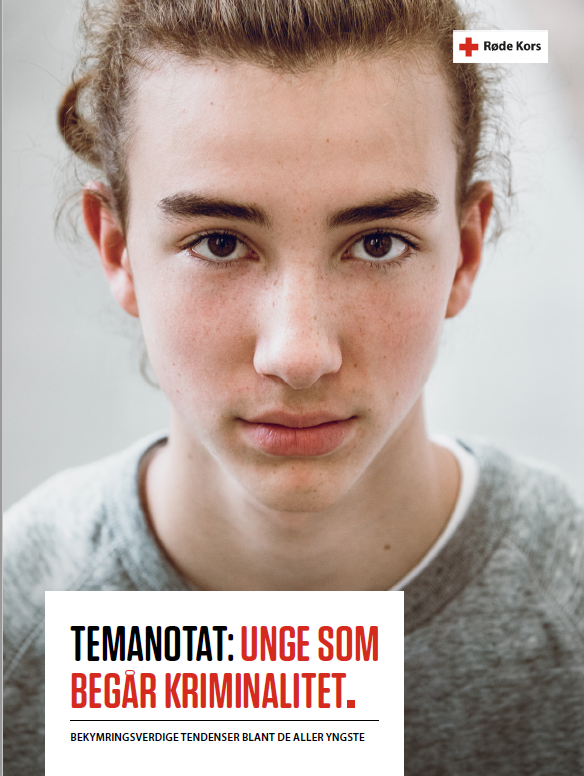“Young people who commit crime” worrying trends among the very youngest

Main purpose of report
With this thematic note, the Norwegian Red Cross wishes to present fact-based knowledge about crime among young people, review the scope of the problem and highlight which development trends stand out in the relevant literature and statistics in the area.
Methodology
Desk study, literature review
Main findings
Overall, there has been no increase in the overall scale of crime among young people in Norway in recent years. However, there has been a negative development within certain age groups and certain types of offenses.
There is a need to work more on preventing crime in the youngest age groups, especially in the areas of violence and abuse, and sexual offenses. For example, 14- and 15-year-olds have been overrepresented in the statistics for sexual offenses in recent years.
Criminal repeat offenders start committing offenses earlier on average than those who are not repeated offenders. Addressing and preventing crime among the very youngest is, therefore, a particularly important priority to reduce the extent of youth crime.
Recommendations
When young people commit crimes, rapid, targeted, and proportionate reactions must be initiated immediately. The processing time for implementing youth punishment and youth follow-up is still too long for young people who need to make amends and move on in life.
Imprisonment as a punitive response for children should not occur. The UN Convention on the Rights of the Child states that the detention of children should only be used as a last resort and for the shortest possible period of time. There is a risk of major adverse effects when it comes to the isolation of children.
